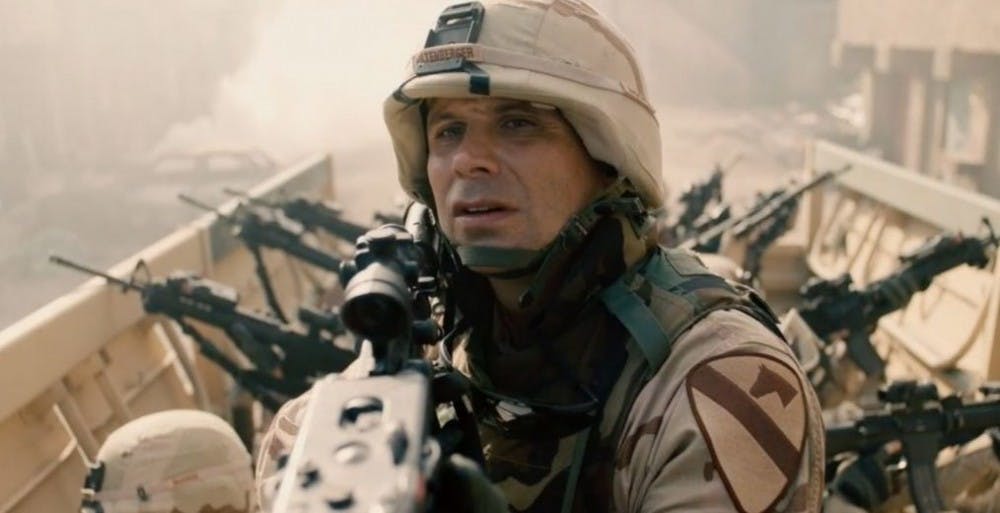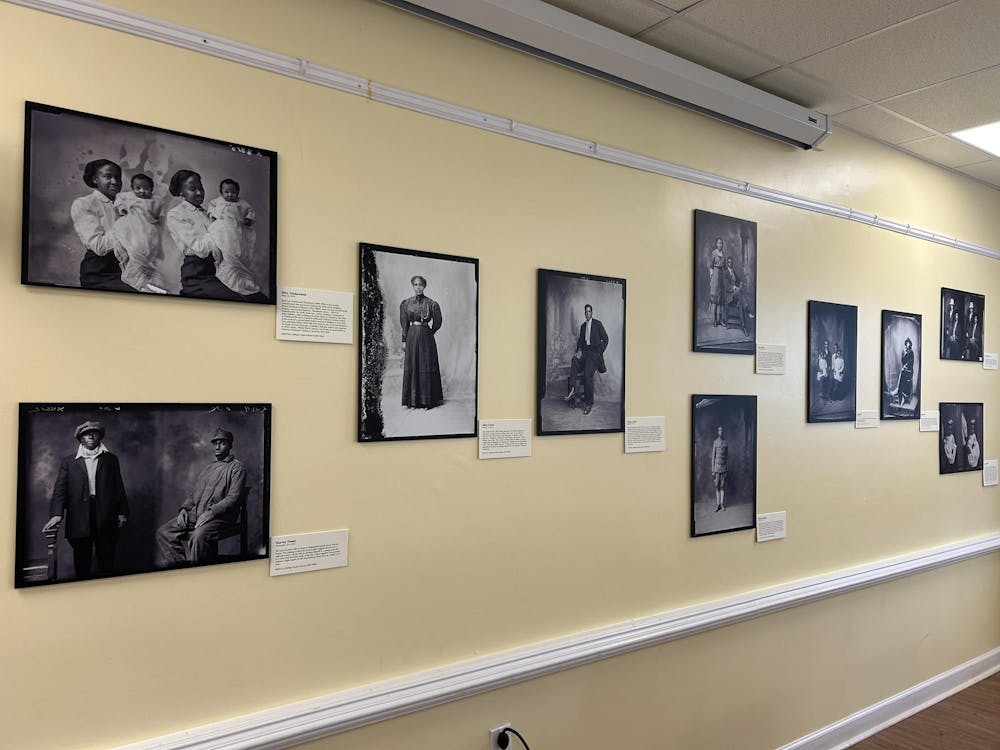One of the more surprising aspects of this year’s Virginia Film Festival was the inclusion of high-quality miniseries. In particular, the unforgettable National Geographic gem “The Long Road Home” stole the show. Based on Martha Raddatz’s 2007 book of the same name, this eight-part series depicts a 24-hour period in which the Fort Hood First Cavalry Division was ambushed in Baghdad — a day that would come to be known as ‘Black Sunday.’ Particularly gripping about this show is its style of plot delivery, switching back and forth between the action in Iraq and the daily lives of soldiers’ families back in the United States.
While only a small selection of episodes from the show were screened this week, a tremendous amount of backstory was provided about ‘Black Sunday’ — in April 2004, the war was winding down and deployments were mainly intended for keeping the peace, not active combat. However, insurgents ambushed an infantry unit in Sadr City, Baghdad, stranding them and forcing them to wait for rescue. Soldiers were pushed into uncomfortable, sometimes fatal positions during rescue attempts, and this one day changed many people’s minds about the war as a whole, including participating soldiers.
This week, Culbreth Theatre screened the sixth part of the series, entitled “A City Called Heaven.” This particular episode focuses on Private First Class Tomas Young (Noel Fisher) and opens prior to Young’s deployment, as he interacts with his family and goes on a first date with his future wife, Brie Townsend (Sarah Ramos).
During a romantic scene that finds Young and Townsend sharing a lazy morning in bed together, the episode abruptly cuts to its first shot of action in Iraq — the stranded platoon making its way to the best location to send up a flare. This sets the precedent for the rest of the episode’s excellent dramatic pacing, pitting the rescue attempt that Young was a part of against his readjustment to post-deployment life.
Out of this stark juxtaposition emerges several deeply affecting moments. The most gripping moment comes as Young’s Humvee drives down the streets of Sadr City, taking and returning heavy fire against the Iraqi insurgents. He takes a bullet to the spine, falling into a supine position in the bed of the truck. Lying frozen for several seconds, he comes back into consciousness and begs his fellow soldiers to kill him after noticing his newly-developed paralysis.
Another swift scene change occurs, and suddenly the viewer is immersed in Young’s bedridden, drug-dependent life after war. Continuing to alternate between Baghdad and his hometown in Texas, more light is shed on the soldier’s circumstances. His paralysis is permanent, the Veteran Affairs hospital that treated him wound up releasing him earlier than he would have liked and he feels his condition is dragging his wife down with him. Worst of all, his brother Nathan still plans on deploying to the very same place that Tomas just returned from paralyzed.
Fisher does a wonderful job of conveying both Tomas’ excitement to deploy and his pure hopelessness upon his return. Near the end of the episode, Young leaves his wife in order to better deal with his condition, and he begins to become a vocal detractor of the Iraq War. The episode closes with his appearance at a church, sharing his survival story and spreading a message of general disapproval for the war that cost him the use of his limbs. Young passed away in 2014, and his death ignited the idea for the miniseries.
Fisher and Katherine Willis — the actress tasked with playing Young’s mother on the show — stuck around after the conclusion of the episode for a question-and-answer segment. Fisher said the entire cast “shared the responsibility” of retelling such a heavy story, because it was a real experience the soldiers had. Before starting to film the show, he decided to visit Tomas Young’s surviving family — mother Kathy and brother Nathan.
“Meeting his family was something that I felt very strongly about,” Fisher said. “It’s a very strange experience when you’re sitting with a mother who’s lost her son, and you’ve been charged with telling his story, and going through [Tomas’] photo albums.”
Hearing Fisher and Willis share their experiences of working on a show that tackles such a serious subject made watching “The Long Road Home” all the more meaningful, and the show’s premiere on National Geographic is sure to strike a chord with its viewers.
“The Long Road Home” plays on National Geographic, Tuesdays at 10 p.m.







